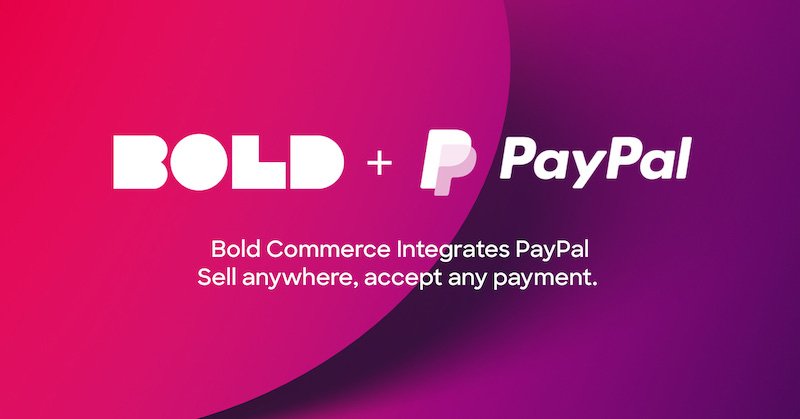Paypal joins Bold Commerce

PayPal is offering a new integration with e-commerce technology company Bold Commerce.
FACTS
-
Bold Commerce's suite of tools is an infrastructure dedicated to small merchants who want to offer their customers a unified e-commerce experience across multiple sales channels.
-
The e-commerce technology company, based in Austin and Winnipeg, currently works with more than 90,000 brands in over 170 countries.
-
Its solution includes:
-
payment options;
-
a subscription management solution;
-
pricing rules for retailers targeting multiple online sales platforms;
-
and direct-to-consumer sales, allowing merchants to transact with customers wherever they interact with the brand.
-
-
The collaboration between PayPal and Bold Commerce allows merchants to :
-
Access a single, pre-integrated solution.
-
Offer payment solutions wherever shoppers interact, such as blogs, social networks and QR codes on packaging.
-
Manage and accept a full range of payment methods, including PayPal, Venmo, PayPal Pay Later, credit and debit cards and multiple local payment methods, through a single payment service.
-
CHALLENGES
-
An end-to-end omnichannel experience must include payment: To drive conversion and grow their business, merchants need to offer personalised payment experiences based on shoppers' profiles and how they shop. "The payment experience must extend to wherever shoppers are today, which also means that a full range of payment options must be available to shoppers wherever they are," said Yvan Boisjoli, co-founder of Bold Commerce.
-
Increase conversion: Paypal's new payment methods are expected to increase payment conversion on merchant websites and what Bold Commerce calls "purchase touch points," which will generate more revenue by reducing friction.
-
Create a network effect: By bringing Bold Checkout to PayPal's offering and its more than 430 million active accounts, the collaboration paves the way for the largest global inter-merchant network effect for e-commerce.
MARKET PERSPECTIVE
-
PayPal is adapting to the e-commerce downturn and preparing for a potential recession, in part by aligning itself with partnerships to deliver these payment solutions. PayPal announced last November that it had reached an agreement with Apple to begin accepting each other's payment products within their respective ecosystems.
-
While PayPal and Apple Pay dominate the dematerialised payment solutions sector, the largest banks in the US are organising to develop their own digital wallets. Bank of America, JPMorgan Chase and Wells Fargo are seeking to maintain their influence over their customers to prevent them from being directed to the other side.
